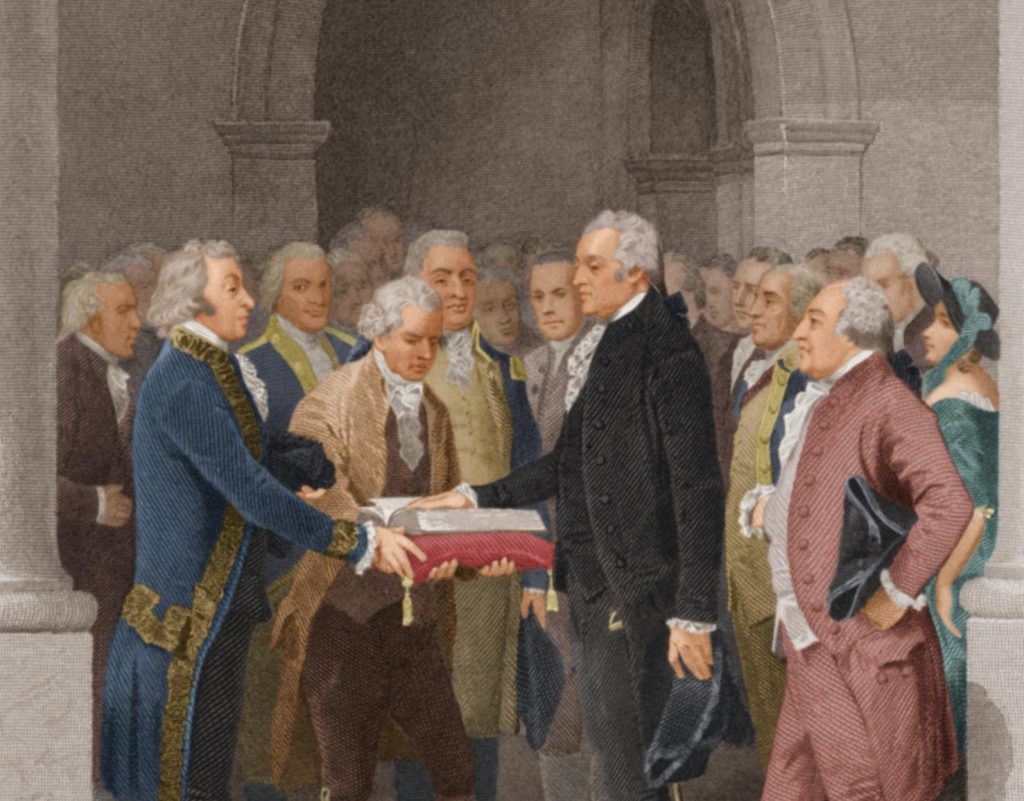Grades: 8, 11
Courses: American History
Focus: Washington served as the American president between 1789 and 1797. In that time he established a variety of precedents related to the conduct and nature of the American presidency. However, his biggest impact as president was the legacy of American business, banking, and trade. With a cabinet consisting of Alexander Hamilton running the Department of Treasury, Thomas Jefferson running the Department of State, and Henry Knox running the Department of War, Washington oversaw a highly talented crew. Washington’s (and Hamilton’s) primary goal was to establish a highly robust international trade, while also staying well out of the constant wars and conflicts of global mercantilism. In other words, the United States would need to walk a fine line between political isolationism and energetic world trade.
Outcomes: Students will be able to identify George Washington’s foreign policy goals in terms of trade and military alliances while demonstrating how his domestic policy supported those goals. They should become familiar with Washington’s tariff and banking initiatives as well as his efforts to manage state and national debt.
This lecture is part of ABC-CLIO’s Ideas Worth Sharing series, a collaboration with leading educators to bring you ready-to-use instructional materials ideal for distance learning.




